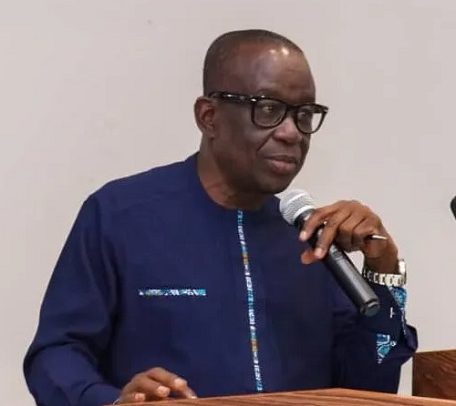Albert Kan-Dapaah
OVER TWO hundred non-state actors and participants at the ‘Accra Initiative’ conference have called on governments to strengthen its fight against terrorism, violent extremism, trans-national organised crimes and other associated violence.
This is because these pose a threat to the development of member states in the sub-region.
Briefing the press at the Ministry of Information yesterday in Accra on the state of security in the sub-region, Minister of National Security, Albert Kan-Dapaah, said the ‘Accra Initiative’, which started in September 2017, was borne out of the desire of the Heads of State of some West African countries, to among other things, adopt a mechanism to strengthen the collaboration and cooperation between their security and intelligence services, through the exchange of information and intelligence.
He said the Accra Initiative was necessitated in 2017 by the urgent need to address the deteriorating security in the Sahel region, coupled with the collapse of Libya in 2011, which triggered the southward movement of Jihadists and arms to the Sahelian region.
The minister said the collaborations were needed as the coastal states alone could not contain the threat by terrorists in 2018 without deeper collaborations with the neighbours in the Sahel, who were at the time under Jihadist attacks.
“The Accra Initiative is, therefore, expected to strengthen operational collaboration between member states so that it can prevent terrorists and extremists from taking refuge in a member state and also, to dismantle terrorist networks and prevent expansion of cells as well as combat radicalisation of violent extremism, and fight against transnational organised crime,” the minister added.
The Accra Initiative, which has its headquarters in Accra, comprises seven member states including Benin, Burkina Faso, Cote d’Ivoire, Ghana, Mali, Niger and Togo, with Nigeria yet to be admitted.
According to him, the non-state actors who formed part of the three levels of the initiative at a two-day conference held on November 18 and 19 recommended to governments to prioritise security in the areas of governance, cooperation and regional solidarity to help tackle radicalisation, combat the financing of terrorism, extremism embedded in human rights, traditional agricultural practices and also technology, as a tool for change in the fight against terrorism.
He further indicated that the Accra Initiative, which relied on three cardinal objectives such as information and intelligence sharing, capacity building and the conduct of joint multinational operations, would go a long way to enhance the core understanding of the threat of terrorism and proffer strategies that would be considered necessary to deal with the exacerbating security challenges facing member countries.
He said the conference also afforded the participants opportunity to share lessons learnt from previous interventions in the fight against terrorism and violent extremism in the sub-region.
Participants at the first level included representatives from the international governmental and non-governmental organisations, CSOs, academia, think-tanks, security activists, diplomatic corps and other multinational initiatives, among others.
The second level of the initiative dubbed ‘Ministerial Section’ which involved the Ministers of Security, Defence and Foreign Affairs and Heads of State and Government of member states, is slated for today, aimed at discussing ways of deepening collaboration to prevent terrorist attacks.
He said the discussion, in the second level of the conference, would also focus on other important discussions on youth employment, which has the potential of threatening the security of member states though government has made several interventions in that regard.
BY Ebenezer K. Amponsah


